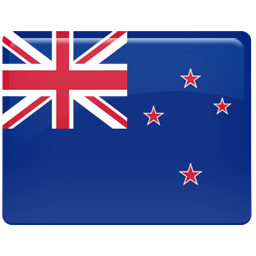
What testing standards are used for polyurethane valve seals in the petroleum industry?
Release time:2025-10-27
Introduction to Polyurethane Valve Seals Testing
In the petroleum industry, polyurethane valve seals play a crucial role in ensuring the containment and regulation of fluids and gases in various operations. These seals must undergo strict testing standards to confirm their reliability and performance under demanding environmental conditions. As a high-quality manufacturer, it is essential to adhere to these testing standards to ensure product integrity and safety.
Raw Material Quality Assurance
Importance of High-Grade Polyurethane Compounds
The quality of polyurethane valve seals begins with the selection of raw materials. Sourcing from reputable suppliers is crucial, and these suppliers must have a proven track record of providing high-grade polyurethane compounds. Only materials meeting stringent specifications should be accepted for production.
Physico-Chemical Assessment
Every batch of raw material undergoes comprehensive inspections, focusing on physical properties such as density, hardness, and viscosity. Deviations in these parameters can significantly impact the final product's performance, affecting flexibility and strength.
Furthermore, chemical analysis is conducted to ensure compliance with strict composition requirements. Testing identifies impurities that could compromise the seals' resistance to petroleum-based fluids, ensuring they meet the industry's chemical resistance thresholds.
In-Process Quality Control Measures
Critical Molding Process Variables
Throughout manufacturing, maintaining control over the molding process is vital. Temperature, pressure, and curing time are monitored to prevent degradation of polyurethane or incomplete curing, both of which could lead to mechanical failure.
Pressure and Dimensional Accuracy
Applying the correct pressure during molding ensures a complete fill of mold cavities, preventing voids and air bubbles that compromise performance. Precision measuring tools are used to verify dimensions, rejecting any seals that deviate from specified tolerances.
Dimensional Accuracy and Visual Inspections
Precision Measurement Techniques
- Calipers
- Micrometers
Tools like calipers and micrometers are essential for measuring critical dimensions, including diameter, thickness, and width, at various production stages.
Visual Inspection Protocols
Trained inspectors visually examine each seal for surface defects such as scratches and cracks, which could impact the seal's integrity and effectiveness. Ensuring a defect-free surface is imperative for maintaining a perfect seal under operational pressures.
Post-Production Physical Property Testing
Hardness and Tensile Strength
Post-production testing evaluates hardness, tensile strength, and elongation at break. Ensuring seals can withstand operational forces without deformation is key to maintaining performance under pressure.
Comparative Analysis Against Standards
Test results are benchmarked against established quality standards. High-quality manufacturers compare these metrics meticulously to uphold consistent product quality.
Chemical Resistance Testing Protocols
Immersion Testing Procedures
Seals are subjected to immersion testing in various chemicals such as hydraulic oil and propane. Evaluations over specified durations assess physical changes in weight, volume, and hardness.
Analyzing Chemical Interaction Effects
The ability of seals to resist chemical degradation is crucial. High-quality factory processes ensure seals maintain structural integrity even when submerged in aggressive chemical environments.
Sealing Performance in Simulated Environments
Pressure and Temperature Assessments
Seals undergo simulated operational testing to assess performance under varying pressures and temperatures. This includes exposure to extremes that mimic real-world applications.
Fluid Flow Rate Simulations
Evaluating sealing performance under different flow rates ensures seals can maintain integrity and prevent leaks, especially critical in dynamic environments typical of petroleum industry operations.
Compliance with International Standards
Adherence to API and ANSI Standards
Polyurethane valve seals must comply with quality and testing protocols outlined by international bodies such as the American Petroleum Institute (API) and the American National Standards Institute (ANSI).
Benchmarking Against Performance Requirements
API 6A PR2 and Annex F provide a comprehensive framework for evaluating non-metallic valve seals. High-quality manufacturers ensure all processes align with these guidelines to guarantee optimal performance and safety.
Comprehensive Quality Assurance and Record-Keeping
Integration of Quality Management Systems
A robust quality management system ensures every production phase, from raw material procurement to final delivery, is meticulously controlled and monitored. Detailed records of inspections and test results are maintained to meet compliance and performance criteria.
Continuous Improvement Practices
Through rigorous testing and continuous data analysis, high-quality manufacturers implement improvements to production processes, ensuring they meet evolving industry standards and customer expectations.
Challenges and Innovations in Polyurethane Seal Testing
Addressing High-Pressure and Extreme Temperature Demands
Innovations in material science and engineering techniques are continuously developed to meet the demanding conditions faced by petroleum industry seals. Manufacturers must stay ahead by adopting state-of-the-art technology and methods.
Pioneering New Testing Approaches
Novel approaches to testing that simulate more complex and realistic operational scenarios help manufacturers deliver products that exceed performance expectations while maintaining safety and reliability.
Borise Provide Solutions
Borise offers comprehensive solutions for manufacturers seeking to enhance the quality and performance of polyurethane valve seals. Our expert team works with factories to integrate advanced testing protocols and ensure compliance with international standards. By adopting cutting-edge technologies and thorough quality assurance practices, Borise helps manufacturers achieve high product reliability and customer satisfaction in the demanding petroleum industry.
User hot search: polyurethane valve seal petroleum


- About BORISE
- Company Profile
- About Team
- On Service
- Company Chronology
- Join Us
- technical support
- Industry Solutions
- Technical Support Analysis
Copyright © 2022,All right reserved © Borise Technology Co., Ltd
Hot Products - Sitemap
case cylinder seal kits
, hydraulic cylinder rebuild kits
, swing motor seal kit
, case 1845c lift cylinder rebuild
, seal regulator gas elpiji
, dust seal ring


















































































